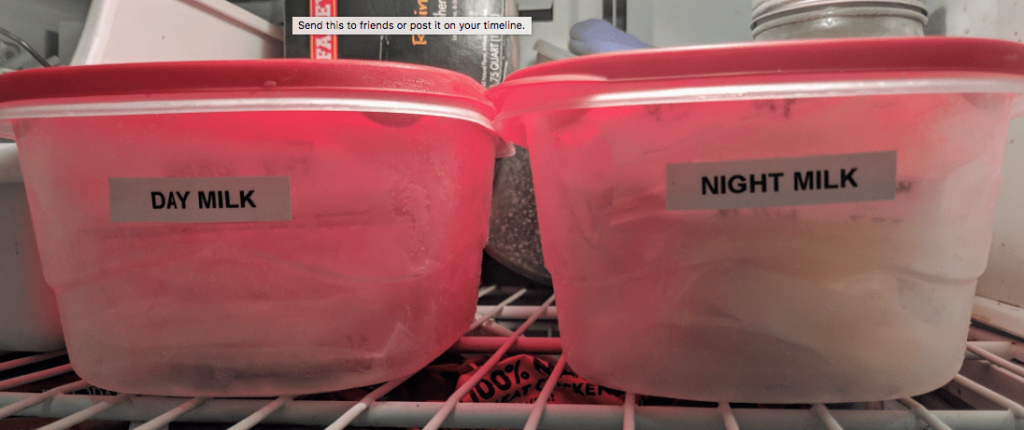Circadian rhythms are an internal “clock” that all humans possess to help in our sleeping and feeding patterns. When disrupted, it can lead to untimed sleep cycles and insomnia, especially in newborns.
“It is normal and healthy newborn behavior to feed every 2-3 hours and to be up for periods of time in the middle of the night. It all comes down to our biological clock, also known as the circadian rhythm, which does not fully develop until around 3-4 months of age.”
Good to know. But what if your baby won’t sleep? You can “train” your child to find their sleep cycle over time, but it could also be your breastmilk. Recently a doula posted about how breast milk can sometimes be the thing that keeps babies up at night. But don’t despair – there’s nothing wrong with you.
Sarah Fillmore is an Iowa-based licensed birth doula who says there is a distinct difference between breast milk pumped during the day versus at night.
“One of the amazing qualities of human milk is how its composition changes throughout the day. Milk produced in the morning has 3 times the level of cortisol, a hormone that promotes alertness, than milk made at night. Night milk is higher in melatonin, which encourages sleep.”
It does make sense that a sleepy mother would have higher levels of melatonin in the evening. Especially when dragged out of bed by the cries of a hungry baby.
“Offering an infant a bottle of morning milk in the evening, with its high cortisol and low melatonin, might be the nutritional equivalent of flipping the lights on right before bedtime. If chronosignals in milk do indeed help to calibrate infant circadian biology, then infants who drink “mistimed” milk may struggle more with sleep, digestion and development.”

Photo Credit: Unsplash, Peter Oslanec
How can mothers make sure they are giving their children the right milk?
Sarah says its as easy as labeling your milk “day” or “night”.
“A practical tip for breastfeeding moms building up a freezer supply is to label the milk with the time it was pumped and try to feed it around the same time of day or night. This may help your baby establish better circadian rhythms, and may help you get a better night’s rest.”
There you have it! Hopefully this helps breastfeeding mothers find a good circadian rhythm for their little ones (and for themselves).






